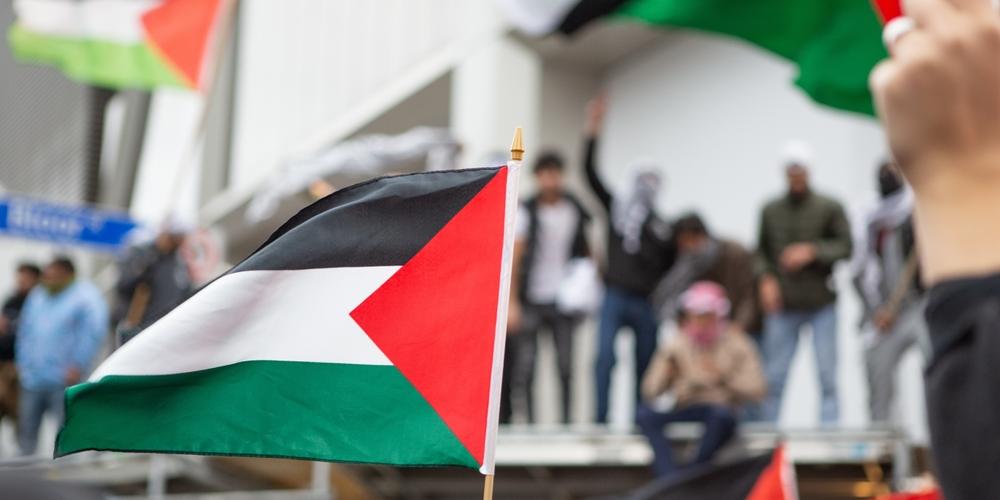
Criminologists Jenneke Christiaens, sociologist Lena Imeraj, political scientist Iman Lechkar, PhD student in history Yannis Skalli-Housseini, and historian Anne Winter have penned a response to the keynote delivered by Hind Fraihi during the Fellowship ceremony. The complete text follows below: “On the one hand, we aim to develop our students into global citizens, and on the other, we find it suspicious that they care about injustice occurring beyond their hometowns.”
"During the presentation of the VUB Fellowships on 30th May, VUB introduced its 28 new Fellows. The explicit goal of these fellows is to exchange experiences at a policy level that benefit research, academic education, and society at large. It was investigative journalist and newly appointed Fellow Hind Fraihi who provided the keynote (in Dutch) at the event held in a packed Mix Brussels venue. Her speech, available in full on the VUB website, demands a response due to unfortunate insinuations towards our own students and staff members.
We share the concern and the fight against racism, antisemitism, misogyny, religious fundamentalism, and extreme right ideologies that Fraihi aims to highlight in her lecture. However, it is exceedingly painful to hear how the protests at universities (including ours) against the Israeli actions in Gaza are seemingly used in Fraihi’s speech as an example of these problematic tendencies. After briefly acknowledging in two sentences that the protests indeed originate from concerned students, lecturers, and professors, who are “genuinely against injustice and war crimes,” the university protests are subsequently attributed to (1) “Arab autocratic regimes,” (2) “identity-oriented leftists who simplistically divide the world into victims, often of colour, and perpetrators, always white,” and (3) “Islamists who see salvation in the theocratic terrorist group Hamas.”
As VUB members involved in these protests, we do not recognize our movement in this characterization at all, and it is deeply saddening that such gratuitous associations deny any legitimacy or ability for autonomous action: if we belong to the “well-meaning demonstrators” at best, we are apparently merely naive puppets of these three malign agenda setters. We are not that, and neither are the other students, lecturers, and university staff who protest.
The occupation by the students at our university is a wake-up call that fully deserves our appreciation and support. Through their ability to create a symbolic communal space in the former STOA, renamed Jabalia Hall, where study, open dialogue, mutual respect, democratic organization, and civic engagement are central, our students admirably put into practice the critical global citizenship we strive to teach them. It is painful to read in the speech that the “importation” of the Israeli-Palestinian conflict “to our regions” is regretted. How so, imported? We cannot aim to cultivate our students as global citizens on one hand, and on the other, suspect them of caring about injustices that occur outside their birthplaces. The world needs you, right?
Furthermore, the "Israeli-Palestinian conflict" is not an imported “conflict” but a violent remnant of European colonial history, which today assumes grotesque proportions through devastating warfare and genocide, in which we are directly involved. The protest is about demanding that the university sever all ties with institutions entangled with the Israeli regime that commits daily egregious human rights violations, forcibly displaces Palestinians and subjects them to mass bombings once they flee, and intentionally destroys hospitals, schools, and universities, killing aid workers, journalists, teachers, students, mothers, and children. These are the practices that need to be questioned and condemned, not the student protests challenging this systematic eradication of the Palestinian people.
We absolutely stand behind the principle of open dialogue and free expression. Precisely for this reason, we must also be allowed to provide a counter-response to the severe insinuations made and to raise serious concerns about the fact that VUB gives a platform to unfounded, one-sided, and radical accusations against its own students and staff members at such a prominent event."
Jenneke Christiaens, Professor of Criminology
Lena Imeraj, Professor of Sociology & Urban Studies
Iman Lechkar, Professor of Political Science
Yannis Skalli-Housseini, PhD Researcher in History
Anne Winter, Professor of History